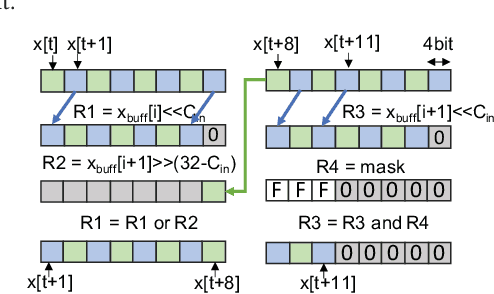Ultra-compact Binary Neural Networks for Human Activity Recognition on RISC-V Processors
Paper and Code
May 25, 2022



Human Activity Recognition (HAR) is a relevant inference task in many mobile applications. State-of-the-art HAR at the edge is typically achieved with lightweight machine learning models such as decision trees and Random Forests (RFs), whereas deep learning is less common due to its high computational complexity. In this work, we propose a novel implementation of HAR based on deep neural networks, and precisely on Binary Neural Networks (BNNs), targeting low-power general purpose processors with a RISC-V instruction set. BNNs yield very small memory footprints and low inference complexity, thanks to the replacement of arithmetic operations with bit-wise ones. However, existing BNN implementations on general purpose processors impose constraints tailored to complex computer vision tasks, which result in over-parametrized models for simpler problems like HAR. Therefore, we also introduce a new BNN inference library, which targets ultra-compact models explicitly. With experiments on a single-core RISC-V processor, we show that BNNs trained on two HAR datasets obtain higher classification accuracy compared to a state-of-the-art baseline based on RFs. Furthermore, our BNN reaches the same accuracy of a RF with either less memory (up to 91%) or more energy-efficiency (up to 70%), depending on the complexity of the features extracted by the RF.
 Add to Chrome
Add to Chrome Add to Firefox
Add to Firefox Add to Edge
Add to Edge